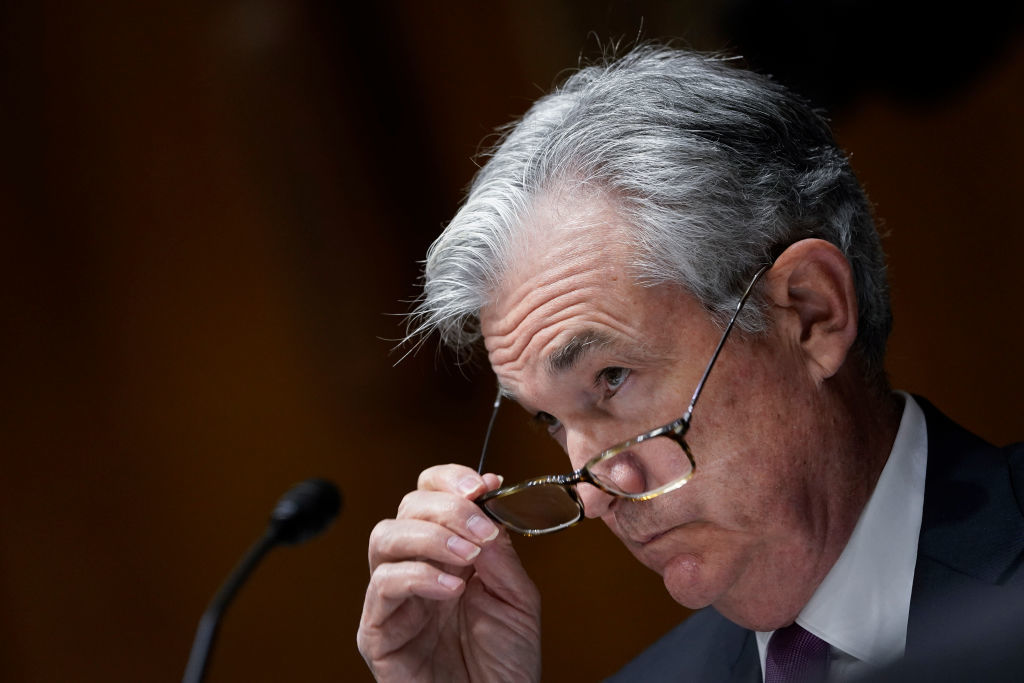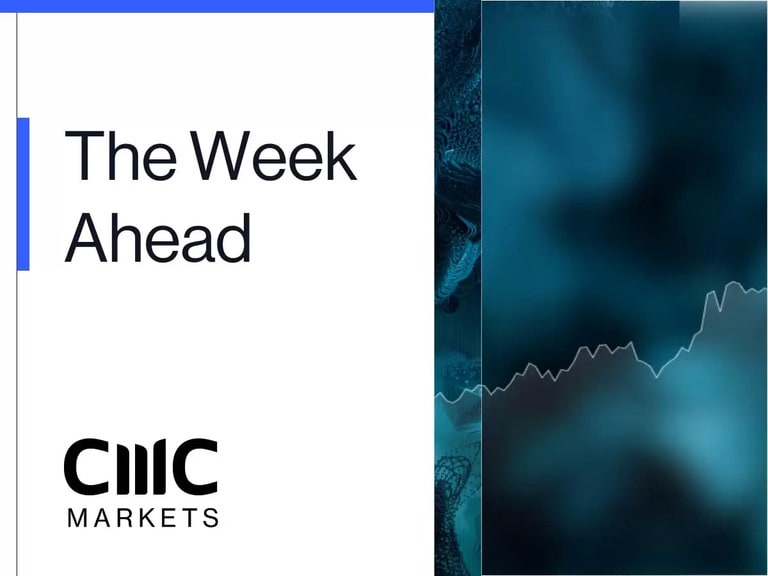It’s been another mixed session for markets in Europe today, with the FTSE 100 underperforming once again, as a fresh set of inflation figures generates further concern about the “transitory” narrative, so beloved of central bankers.
Europe
Concerns about inflation, transitory or otherwise have continued to dominate sentiment today, as worries over the pace and persistence of rising prices, temper optimism over the wider global recovery story. Markets in Europe have undergone a broadly underwhelming session in contrast to US markets which continue to set new records.
UK CPI jumped sharply in June to 2.5%, a much bigger jump than expected, though it really shouldn’t have been too unexpected given how strong recent PPI numbers have been in recent months. The bigger puzzle is why expectations are always on the low side when it comes to these forecasts, could it be that some economists want to believe in their own transitory narrative?
While some of the increases in prices, including the increase in second hand car prices are reflecting trends in the US, on a more worrying note some of the price increases are now starting to be reflected in higher food prices, which in turn could well drive wage inflation further out, while core prices are also rising faster than expected. This remains a worry particularly when we don’t really know what sort of timeline is considered transitory as far as central bankers are concerned.
After all, on a long enough time line everything is transitory, and policymakers' opaqueness on this does raise concerns that they are merely playing a waiting game, and hoping that prices slow of their own accord.
On a more encouraging note, UK PPI for June was lower than in May, perhaps holding out the prospect that we may be nearing the top when it comes to the recent surge higher in prices. We can only hope so given that the Bank of England appears remarkably complacent about the risks of more persistent inflation.
We’ve seen more declines for the travel and leisure sector today with TUI down after cancelling holidays in July, despite the prospect of an easing of travel restrictions next week. While most of the cancellations are on “red list” countries, others have included the likes of destinations in Italy, Spain and Greece. This is yet another blow to a sector that had been hoping for some sort of summer season in order to help rebuild its balance sheets. easyJet, Jet2 and Ryanair shares are also lower. We’re also seeing continued selling pressure on the likes of Marstons, Mitchell and Butlers, Cineworld and Restaurant Group, as concerns about rules around next weeks reopening temper risk towards the sector.
A decent Q4 trading update from Dunelm doesn’t appear to have impressed markets today, despite seeing total sales rise 101.7% year on year to £380.1m. While the gain in today’s numbers can partly be put down to the fact that all of the stores are now open, compared to the same period last year, on a two-year basis, pre-pandemic, we’re still looking at a 43.9% increase. Margins have also improved, rising by 460 bps compared to the same quarter a year ago, with management revising up their full year profit forecasts to £158m.
On the plus side, UK banks are higher led by NatWest Group buoyed by a ratings upgrade from Moody’s and a price target upgrade from Citigroup.
Barratt Developments is also outperforming after upgrading its adjusted full year profit before tax forecasts for the current year, after a year which has seen total home completions rise 36.8% year on year to 17,273, only modestly below 2019 levels. The expectation remains to return to 2019 volumes by 2022, while average selling prices have risen in line with inflation, rather than by margin improvement.
Tullow Oil is higher despite downgrading its full year production guidance for the year from 60k to 66k barrels a day to 55k to 61k barrels a day. The lower guidance reflects the sale of its Equatorial Guinea assets in the first half of this year. H1 revenues are expected to come in at $700m, based on a realised oil price of $58 a barrel.
US
US markets have opened higher, making fresh record highs and ignoring the weakness in today’s Asia and European session with the latest PPI numbers for June appearing to offer the prospect that inflationary pressure is likely to continue for the foreseeable future. Core PPI prices rose again sharply in June to 5.6%, from 4.8%, while headline prices rose by 7.3%.
This rise doesn’t bode well for next month’s US core CPI, which hit its highest levels since 1991 earlier this week, and could well go higher when the July numbers come out.
Despite this hotter than expected number, US 10-year yields slipped back, largely due to comments from Fed chair Jay Powell who said the central bank remains a long way from seeing “substantial progress” when thinking about altering monetary policy, and restating the transitory narrative.
US banks' Q2 earnings season has continued with the latest numbers from Citigroup, Bank of America and Wells Fargo.
Bank of America’s Q2 numbers have followed a similar pattern to yesterday’s numbers from JPMorgan and Goldman, missing on the fixed income front (FICC) front, but improving on the equities side of the business. Total revenues for Q2 came in at $21.5bn, while profits came in at $1.03c a share, both beating expectations, with FICC revenues coming in at $1.97bn, falling shy of expectations of $2.44bn, while equities came in at $1.63bn, above estimates of $1.34bn. On the consumer front, loan growth continues to be a concern, with average loans declining 12% as businesses and consumers resisted the temptation to take on new borrowing. The bank also announced it was releasing $2.2bn from its loan loss reserves, which helped to boost the overall profit number, thus flattering the headline number.
Wells Fargo Q2 numbers are probably the best barometer of how the US consumer is dealing with the pandemic, and today’s numbers showed that the US focussed bank beat on profits and on revenues. Revenues came in at $20.27bn comfortable beating expectations of $17.77bn while profits rose to $1.38c a share. These numbers were also boosted by a release from loan loss provisions of $1.6bn, and similarly also reported that loan demand was muted, however the bank has also seen its cost efficiencies improve as new CEO Charles Scharf implements his turnaround plan.
Citigroup’s Q2 numbers painted a similar picture with profits boosted by a $2.4bn boost from loan loss reserves, pushing profits up to $2.85c a share, well above expectations of $2 a share, while revenues rose to $17.47bn. The patterns in terms of revenue and profitability by division were similar to its peers, FICC underperforming, while equities and trading did better than expected. In retail banking revenue was 7% lower, as consumers paid down debt while deposits rose by 18% as consumers cashed in their stimulus payments. There was some disappointment earlier this month that the bank was one of the few banks not to announce a dividend payout increase, and today’s announcement would appear to suggest that’s not likely to change in the short term.
Apple shares are getting a boost, trading at a new record high, after the company said it was looking to increase iPhone output by 20% for 2021.
Recent IPO Oatly has found itself in the cross hairs of activist short seller Spruce Point over allegations of dubious accounting practices about its sustainability credentials. The oat-based milk substitute manufacturer has had a decent start from its initial IPO launch; however, these claims could see some of the gloss taken off the recent exuberance around the company.
FX
Despite today’s surging US PPI number, the US dollar has slipped back on comments from Fed chair Jay Powell that the Fed remains some way from seeing “substantial progress” on the economy and that a taper remains some way off, dealing a blow to the narrative that a taper could come as soon as the autumn.
The New Zealand dollar has rallied strongly after the Reserve Bank of New Zealand (RBNZ) said it could see scope to reduce the level of monetary stimulus, and would halt additional asset purchases by 23rd July. The cash rate was left unchanged at 0.25%.
The pound has also been among the better performers hitting a three-month high against the euro, largely as a consequence of the higher-than-expected CPI numbers, raising the prospect that the Bank of England will, at some point, be forced to act in paring back its asset purchase program as the economy improves further.
The Canadian dollar has retreated from its highs after the Bank of Canada left rates unchanged, while also announcing that it would be reducing its bond purchase program to C2bn a week. This move by the BoC appears to have already been priced in if today’s reaction is any guide.
Commodities
Gold prices have moved higher again, helped by the weaker US dollar and the continued weakness in US 10-year yields, pushing up into technical resistance and the 200-day MA.
Concern about demand in the face of rising Delta variant cases has seen crude oil prices pull back a touch today, although the compromise between the UAE and Saudi Arabia over output may well have also contributed to the move lower. The UAE will now get the green light to increase baseline production to 3.65m barrels a day, when the current agreement rolls off in April 2022.
CMC Markets erbjuder sin tjänst som ”execution only”. Detta material (antingen uttryckt eller inte) är endast för allmän information och tar inte hänsyn till dina personliga omständigheter eller mål. Ingenting i detta material är (eller bör anses vara) finansiella, investeringar eller andra råd som beroende bör läggas på. Inget yttrande i materialet utgör en rekommendation från CMC Markets eller författaren om en viss investering, säkerhet, transaktion eller investeringsstrategi. Detta innehåll har inte skapats i enlighet med de regler som finns för oberoende investeringsrådgivning. Även om vi inte uttryckligen hindras från att handla innan vi har tillhandhållit detta innehåll försöker vi inte dra nytta av det innan det sprids.






